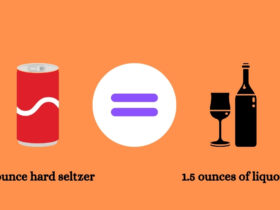Want to turn fresh produce into cold, hard cash?
Starting a homemade juice business is one of the smartest moves entrepreneurs are making right now. After all, the health-conscious crowd is willing to pay premium prices for:
- Fresh, natural juices
- Made-to-order smoothies
Here’s the thing:
The juice market is absolutely booming. 57% of consumers purchase juices and smoothies regularly, and they’re not slowing down anytime soon.
But here’s what most people don’t realize when they’re selling your homemade juices/smoothies…
Starting this business the right way requires more than just a good blender and some fruit. There’s a proven blueprint that successful juice entrepreneurs follow to build profitable businesses from their own kitchens.
What you’ll discover:
- Why the Juice Business Opportunity is Massive Right Now
- The Essential Equipment That Actually Matters
- Legal Requirements You Can’t Skip
- Smart Packaging Solutions for Maximum Profit
- Pricing Strategies That Sell
- Marketing Tactics That Build Customer Loyalty
Why the Juice Business Opportunity is Massive Right Now
The numbers don’t lie when it comes to juice business potential.
The juice market reached $4.1 billion in 2025 and keeps growing every single year. Even better? Independent juice businesses are thriving alongside the big corporate players.
Think about it this way…
Most people want fresh, healthy options but they’re too busy to spend 30 minutes each morning juicing fruits and vegetables. That’s where your homemade juice business comes in. You do the prep work, they get the nutrition.
The beauty of starting from home is that you can test your recipes and build a customer base without the massive overhead costs of opening a storefront. Many successful juice entrepreneurs started exactly this way before scaling into physical locations.
People are willing to pay premium prices for quality too. The average juice bar makes between $100,000 to $600,000 annually, and that’s with all the overhead expenses of rent, utilities, and employees.
When you’re operating from home, those overhead costs disappear. That means higher profit margins and faster return on investment.
The Essential Equipment That Actually Matters
Getting started doesn’t require breaking the bank on fancy equipment.
Most beginning juice entrepreneurs buy way too much gear before selling their first bottle. Smart business owners start with basics and upgrade as they grow.
You need a quality juicer for volume production. Cold-press juicers produce better juice but cost more upfront. Centrifugal juicers work fine for testing recipes and small batches.
A commercial-grade blender handles smoothies and thick ingredients without burning out the motor.
Storage solutions are critical but overlooked. 160 oz Handleware Jugs are perfect for bulk storage and wholesale distribution because they’re designed specifically for liquid products.
Don’t forget smaller items like measuring cups, strainers, cutting boards, and cleaning supplies. Keep detailed records because these are business expenses.
New juice makers always underestimate prep time. Washing, chopping, juicing, and cleaning takes much longer than expected. Factor this into pricing from day one.
Legal Requirements You Can’t Skip
Running a food business from home sounds simple until regulations come up.
Every state has different cottage food laws determining what you can sell from home. Some allow fresh juices, others require commercial facilities.
Contact your local health department first to understand requirements. They’ll explain permits, inspections, and certifications needed.
Most areas require business licenses even for home operations. This involves registering your business name, getting tax numbers, and obtaining liability insurance.
Food safety training is non-negotiable with fresh juices. Short shelf lives create health risks if handled improperly.
Labeling requirements typically include ingredients, nutrition facts, and allergen warnings. Proper labeling protects you and customers.
Insurance might seem unnecessary, but contamination incidents destroy businesses and finances. General liability insurance for food businesses is surprisingly affordable.
Smart Packaging Solutions for Maximum Profit
Packaging makes or breaks juice business profitability.
Most new entrepreneurs focus on product and treat packaging as afterthought. That backwards thinking costs money and customers.
Your packaging must preserve freshness, look professional, provide information, and stay within budget. Finding containers checking all boxes isn’t easy.
Glass bottles look premium and preserve flavor better than plastic, but they’re heavy and expensive. Many businesses use plastic for everyday sales and glass for premium products.
Consider distribution when choosing containers. Direct delivery makes weight less important than retail sales.
Labeling is marketing strategy, not just legal requirement. Eye-catching labels communicating benefits justify premium pricing.
Bulk packaging for wholesale requires different considerations. Restaurants need larger containers that pour easily and store efficiently.
Pricing Strategies That Sell
Pricing homemade juices requires balancing profitability with market acceptance.
The biggest mistake is pricing based on ingredient costs alone. That ignores labor, packaging, overhead, marketing, and profit margins. The result is prices that don’t make money.
Calculate true cost per bottle including ingredients, packaging, labor time, equipment depreciation, and fixed costs. Then add profit margin.
Research competitor pricing for market baseline. Premium ingredients and unique recipes justify higher prices if you communicate value clearly.
Consider different strategies for different segments. Direct sales command higher prices than wholesale. Subscription customers accept higher per-bottle prices for convenience.
Test different price points to optimize revenue. Start higher than expected, then adjust based on response. Lowering prices is easier than raising them.
Volume discounts encourage larger purchases. “Buy five, get one free” deals move product while maintaining margins.
Don’t compete on price alone. Focus on quality, freshness, unique flavors, and service. These allow premium pricing and build loyalty.
Marketing Tactics That Build Customer Loyalty
Marketing homemade juices means selling health, convenience, and taste simultaneously.
Social media works incredibly well because products are photogenic and health content performs well. Show fresh ingredients, juicing process, happy customers, and finished products.
Local marketing often beats trying to reach everyone online. Partner with gyms, yoga studios, health stores, and farmers markets. These locations have audiences aligned with juice customers.
Sampling works extremely well for food products. Once people taste your juice, they buy. Offer samples at markets, events, and through business partnerships.
Email marketing builds relationships between purchases. Share recipes, health tips, seasonal information, and offers. Keep content valuable, not sales-heavy.
Customer reviews provide social proof influencing decisions. Encourage satisfied customers to leave Google and Facebook reviews. Respond to all reviews.
Subscription services create predictable revenue and increase customer lifetime value. Weekly or monthly deliveries work well for busy professionals.
Referral programs turn customers into marketers. Offer incentives for bringing new business. Word-of-mouth recommendations are powerful for local food businesses.
Getting This Right From Day One
Starting a profitable homemade juice business isn’t complicated, but it requires doing things in the right order.
The juice industry continues growing because 21% of consumers have increased their juice consumption recently. That creates opportunities for entrepreneurs who understand both product and business sides.
Success comes from focusing on fundamentals first. Get recipes dialed in, understand costs completely, comply with regulations, and choose packaging supporting business goals. Master these basics before worrying about expansion.
Entrepreneurs who build lasting juice businesses think long-term from day one. They price for profit, invest in proper equipment, follow safety protocols religiously, and treat customers like valuable assets.
Most importantly, they understand that selling homemade juices successfully requires treating it like a real business, not a hobby. That mindset difference determines who succeeds.
Your juice business can generate substantial income following proven strategies. Focus on quality, understand numbers, market consistently, and prioritize satisfaction. Do those things and profits follow.







Leave a Reply